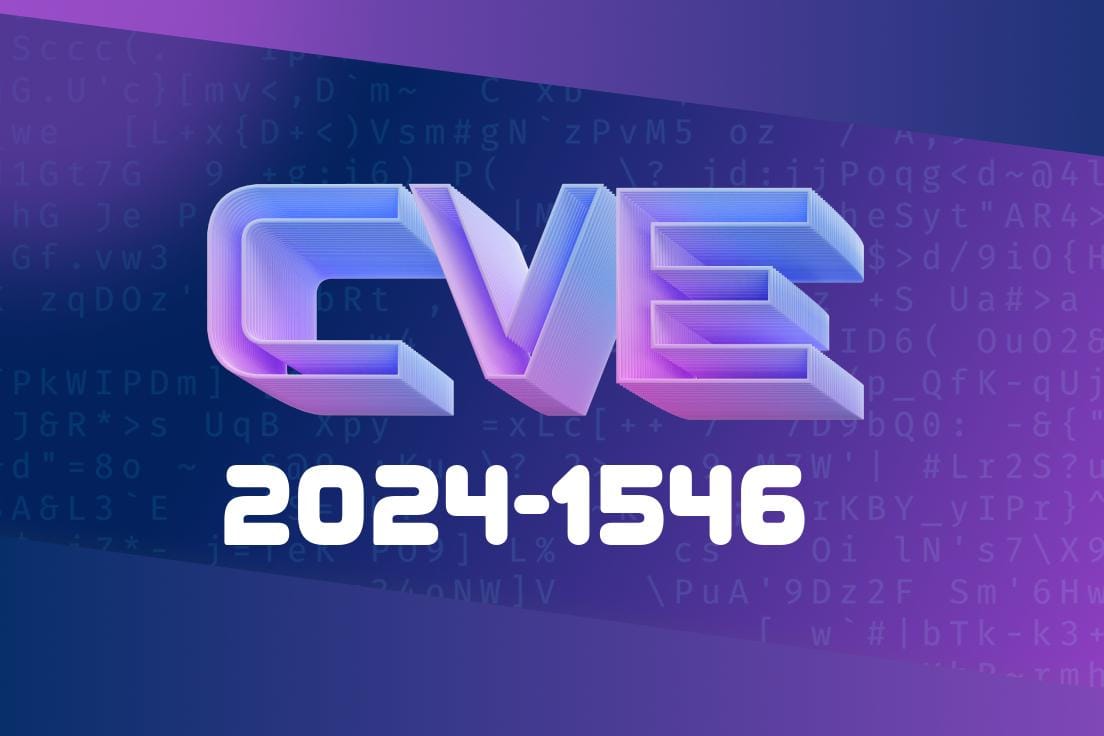CVE-2024-1546 is a recent vulnerability making waves in the cybersecurity community, particularly because it affects widely used Mozilla products: Firefox (before version 123), Firefox ESR (Extended Support Release before 115.8), and Thunderbird (before 115.8). It is a classic example of how small mistakes in buffer management can open the door for critical security issues.
In this detailed post, we’ll break down what went wrong, highlight the risk, look at example exploits, and provide reference links to official sources — using simple and digestible language.
What Is CVE-2024-1546?
This vulnerability is an out-of-bounds memory read:
When data is being stored and then read again on a network channel, the program makes a mix-up about how long the buffer is. That means it may read *past* where it should, opening a chance for attackers to access memory that should be off-limits.
Attackers might be able to leak private data or secrets handled by Firefox or Thunderbird.
- In some situations, they could use this bug as a primitive in more advanced exploits, possibly even leading to code execution.
How Does the Bug Happen? (Simple Explanation)
When Firefox sends and receives data, it keeps that data in “buffers” — special blocks of memory. The bug comes down to Firefox’s network code not keeping track of buffer lengths accurately.
Imagine you have a box for 10 cookies, but you think it can hold 15, so you reach in to grab cookie number 12. That spot is empty — it’s not even part of your box! In computer terms, you read uninitialized memory, which can contain leftover secrets or even system pointers.
*Here’s a simplified code example that shows how this kind of bug might sneak in:*
// Simulated example, NOT actual Firefox code
void processReceivedData(char* data, size_t length) {
char buffer[100];
// Only copy up to buffer's size!
memcpy(buffer, data, length); // Potential overflow
// Later, code tries to "read back"
printf("First few bytes: %02x %02x %02x\n", buffer[], buffer[1], buffer[102]); // OOB read!
}
If length is miscalculated or unchecked, the program accesses parts of memory that extend past the end of the buffer — out-of-bounds.
What’s the Real Impact?
Most users won’t notice this bug in daily use. However, attackers with a crafted website or a malicious email could *potentially* trick Firefox or Thunderbird into revealing parts of memory they shouldn’t see.
Demo: Exploiting Out-of-Bounds Read (For Illustration)
While there’s no “plug-and-play” public exploit for this specific bug (that would be dangerous!), here’s an example of how an attacker could abuse similar bugs in practice — based on previous out-of-bounds reads in browsers.
1. Craft a Malicious Page or Email
The attacker prepares data that, when read by the browser or mail client, causes the buffer confusion.
2. Leak Memory
If the browser responds with the data, it might accidentally send out-of-bounds data back to the attacker.
Example in JavaScript (For Older Browser Exploits)
let arr = new Uint8Array(100);
// Attacker triggers bug causing arr.length to be misread
// Now, arr might leak data from a different memory area
for (let i = 100; i < 120; i++) {
console.log(arr[i]); // Out-of-bounds read, potential leak
}
*Note*: This is a conceptual demo — not the exact exploit for CVE-2024-1546, but the idea is similar. The attacker aims to trick the browser into giving them information outside the original buffer.
If you use Firefox, Firefox ESR, or Thunderbird, upgrade to the fixed version or newer.
Download the latest Firefox
Download the latest Thunderbird
Be wary of unusual or unexpected emails and web links, especially before updating.
3. Developers should review buffer management in network code and always double-check length calculations.
Original References
- Mozilla Foundation Security Advisory 2024-11
- CVE Record at MITRE
- Bugzilla Report (restricted, but summary available)
Conclusion
CVE-2024-1546 teaches us that even simple mistakes in buffer length bookkeeping can have big consequences, especially in widely used software like Firefox and Thunderbird.
If you care about staying secure online, keeping your software up to date is step one! And if you’re a developer, always keep an eye on how memory and buffers are managed, especially with anything related to I/O or networking.
Timeline
Published on: 02/20/2024 14:15:08 UTC
Last modified on: 11/05/2024 16:35:09 UTC
